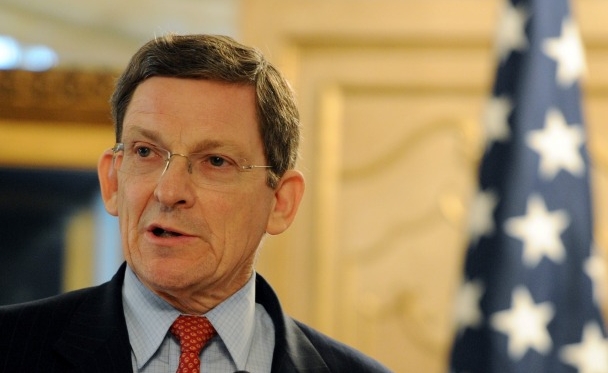
Ambassador Marc Grossman: Diplomacy for the 21st Century
USC Center on Public Diplomacy welcomedAmbassador Marc Grossman. The nature of 21st-century diplomacy is changing. To be successful, diplomats must simultaneously shape, act upon, and react to global challenges. No single problem, danger, or threat holds the key to the world's future. What matters is their interaction and the simultaneity of our responses.
About Ambassador Marc Grossman
In 2005, Ambassador Marc Grossman completed 29 years of distinguished public service when he retired from the State Department as the Under Secretary of State for Political Affairs. Ambassador Grossman served as the Department’s third-ranking official, supporting U.S. diplomacy worldwide. Following the September 11th attacks, he helped marshal international diplomatic support for the Global war on Terrorism and for the military campaigns in Afghanistan and Iraq.
A native of Los Angeles, California, Ambassador Grossman graduated from the University of California, Santa Barbara and later received an MSc. in International Relations from the London School of Economics and Political Science. As a result of his outstanding service to his country, Ambassador Grossman is the recipient of numerous honors and awards. He attained the Foreign Service’s highest rank in 2004 when the President appointed him to the rank of Career Ambassador; he received the Secretary of State’s Distinguished Service Award the following year.
Highlights from Ambassador Grossman's talk
• Ambassador Grossman discussed his views on how “21st century diplomacy” will need to look if diplomacy is to play a role in future events, and not be relegated to the history books.
• The past role of the diplomat to “observe and report” is no longer relevant, and the profession of diplomacy has become increasingly more programmatic and active. Facing a new global environment and new responsibilities, today’s diplomats are more educated, more technically adept, and have a different emphasis on training than in the past.
• Grossman sees diplomacy reaching deeper into society to address issues from terrorist financing to sustainability and the environment to nuclear weapons.
• The importance of diplomacy in conflict prevention and resolution will also be paramount, including the practice of “track II” diplomacy that broadens connections between countries beyond their governments. The need for a Civilian Response Corps with diplomats that can deploy immediately in the aftermath of conflict is only increasing.
• Grossman foresees the development of “expeditionary diplomats” with the capacity, the mindset, and the interest in taking on the toughest diplomatic assignments and supported by additional training to prepare them to undertake these tasks.
• He also emphasized that every diplomat must recognize the elements of public diplomacy in their professional responsibilities as part of the efforts to reposition diplomacy toward the future.
Visit CPD's Online Library
Explore CPD's vast online database featuring the latest books, articles, speeches and information on international organizations dedicated to public diplomacy.







